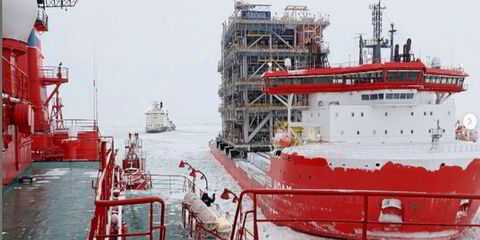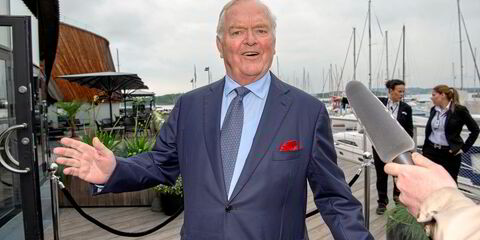Most financiers interviewed in a new study are “loyal enablers” in shipping’s decarbonisation, meaning they are supporting their customers to make their companies greener.
But the loyalty of those commercial banks also extends to shipping customers that want to stick with fossil fuels, which could delay the industry transition or make it more difficult further down the road, according to a paper by UCL Energy Institute researchers.
“The finding that the majority of financiers interviewed (and all commercial banks) can be categorised as loyal enablers — [that is] they are supportive of incumbent shipowners which is their customer base — makes it more likely that the energy transition will be largely driven by incumbent shipowners,” UCL’s Marie Fricaudet, Sophia Parker and Nishatabbas Rehmatulla wrote in the case study published in the Environmental Innovation and Societal Transitions journal.

“Most financiers also place the responsibility of the energy transition with the shipowner, which could lead to further technology lock-in (exemplified by some banks’ support of their clients’ LNG-propelled ship investments) if financiers do not investigate the associated climate risks.”
The institute, part of University College London, put shipping banks into five categories, including inert financiers that are sticking with the status quo and those involved in “creative self-destruction” that steer customers towards even more investment in current technology.
On the other end of the spectrum are the redirecting enablers that are redirecting their investments toward niche shipping players that are focused on new, greener technologies, and the financiers that are “winding down” their shipping exposure because they see transition ahead but cannot bankroll new technology.
Fricaudet, the study’s lead author and a PhD student at UCL, said the analysis shows that banks’ beliefs and behaviour are not a matter of black or white.
“On the one hand, the overwhelming majority of our interviewees showed some awareness of the upcoming transition to low-carbon shipping and are keen to play a supportive role in it,” she said in a statement.
The UCL researchers grouped shipping banks into five categories:
- Inert: A financier that anticipates stability in the current regime
- Creative self-destruction: A bank that anticipates growth in the current industry regime and steers customers to invest more in current technology
- Loyal enabler: A financier that anticipates and supports transition but is loyal to its customers’ choices
- Redirecting enabler: A bank that anticipates transition for the industry and shifts its investments to new technologies
- Winding down: A financier that sees a transition coming but backs out of the industry rather than invests in new technologies
“On the other hand, they are showing limited awareness of the need for future reduction in fossil fuel cargo transportation, a crucial element for meeting the goals of the Paris Agreement.”
She said many of those banks are showing strong trust in the opinions of their shipowner customers.
The study did find that some banks are redirecting enablers, but the authors said more are needed to accelerate the transition, and alternative funding sources may be required.
Parker said it is positive that banks are putting pressure on customers to have an energy transition plan, but they are still putting those customers in the driver’s seat when it comes to investing in low- or zero-carbon technology.
“This makes ship financiers vulnerable to shipowners’ fuel decisions and could lock financiers into assets which become stranded later on if they can’t competitively transition their ships from running on fossil fuels,” she said.
Rehmatulla, a principal research fellow at UCL Energy Institute, said financiers are among those driving the alignment of shipping with the International Maritime Organization’s greenhouse gas targets and the Paris Agreement goal of halting global heating at 1.5C.
“Whilst financiers in the sector have taken early steps — [for example] through Poseidon Principles — aligning portfolios to downward CO2 trajectories (though only in line with IMO targets and not 1.5C trajectories) this is at times at odds with their beliefs and behaviours in what they are financing,” he said in a statement.



